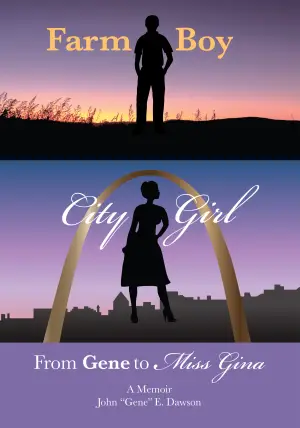Book Review: AI 2041: Ten Visions for Our Future by Kai-Fu Lee & Chen Qiufan
When I first picked up AI 2041: Ten Visions for Our Future, I was intrigued by the blend of speculative fiction with real-world technological insights—two areas I hold dear. Written by Kai-Fu Lee, an AI expert, and Chen Qiufan, a gifted storyteller, this ambitious book promises not only to entertain but to provoke thought about the future of artificial intelligence and its impact on our lives.
Divided into ten chapters, each beginning with an engaging short story from Qiufan, the book combines imaginative narratives with Lee’s analytical perspectives on potential technological advancements and societal changes. As I delved into these stories, a compelling vision of 2041 began to take shape—one that felt simultaneously exhilarating and unsettling.
The narrative arcs touched on vital themes of connection, identity, and the human condition, set against a backdrop where AI is fully integrated into our society. While I was captivated by the imaginative storytelling, I often found myself grappling with the stark realities presented by Lee. His commentary read like a call to action, urging readers to consider not just the promises of AI but also its potential pitfalls—especially concerning work and human relationships.
One chapter that left a profound impact on me was the one featuring two lovers who, having spent years in a virtual romance, finally meet in person. The emotional tension was palpable, but what struck me most was the backdrop of their reunion: a society where physical interactions had become a rarity, a critique that resonated deeply in our current world, where digital devices often overshadow genuine human connection. This narrative serves as an eerie reminder of our trajectory if we allow technology to dictate our relationships.
Lee’s prose is clear and evocative, often moving at a brisk pace that urges you to keep turning the pages. However, his optimistic vision of a future where AI fosters a utopia seems overly simplistic against the dystopian elements lurking throughout the book. While the tales of AI enhancing lives were inspiring, I was left pondering the darker implications: job displacement, social isolation, and new hierarchies.
The juxtaposition of the idyllic and the dystopic creates a dissonance that I found difficult to reconcile. While parts of me yearn for the harmonious society they envision, a deeper skepticism lingers. Are we truly prepared for a future where AI governs so much of our lives?
I believe AI 2041 will resonate with a broad audience—from tech enthusiasts to speculative fiction lovers. Yet, I also recommend it to anyone eager to engage in critical conversations about our future. This book challenged my perceptions and illuminated the complexities that come with rapid technological advancement.
Reading AI 2041 was an enlightening experience that evoked both hope and concern. As we edge closer to the future depicted within its pages, it’s more important than ever to engage thoughtfully with the technologies shaping our world. After all, understanding the potential consequences is crucial in ensuring that we harness AI not just for innovation but for the betterment of humanity as well.
Discover more about AI 2041: Ten Visions for Our Future on GoodReads >>















